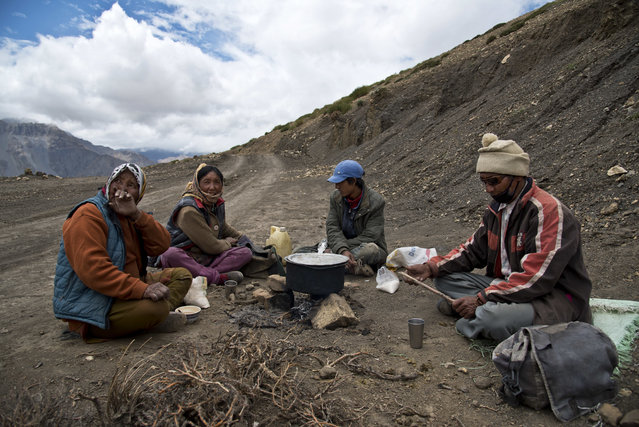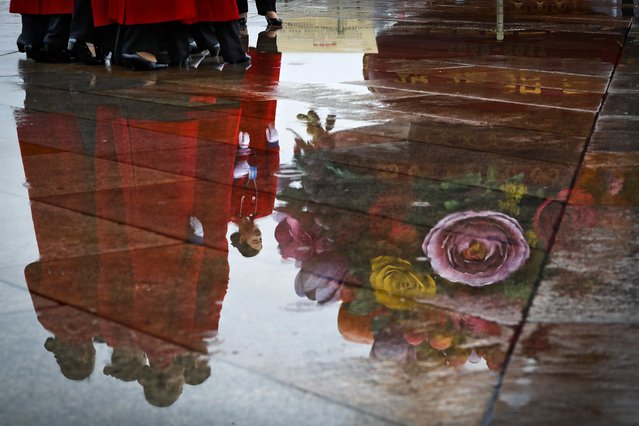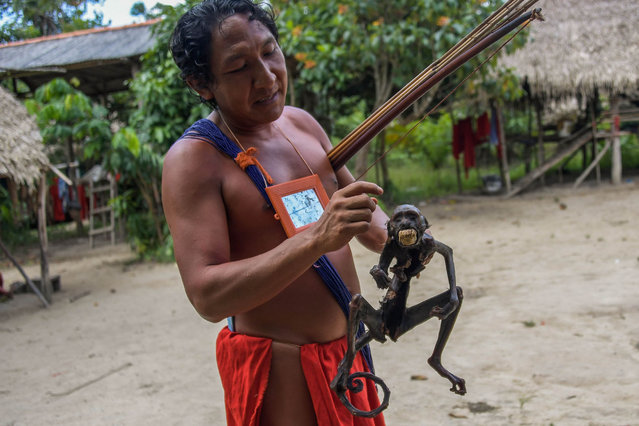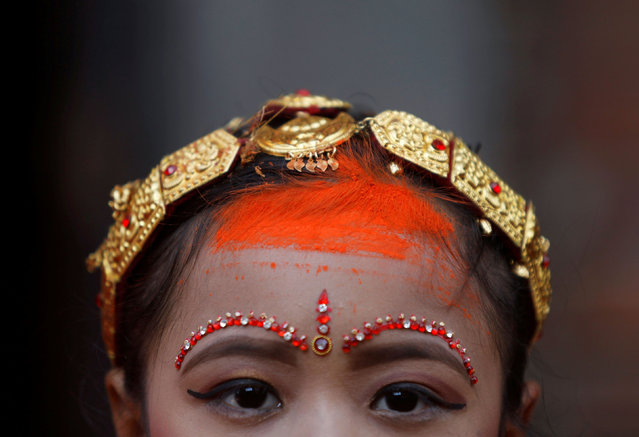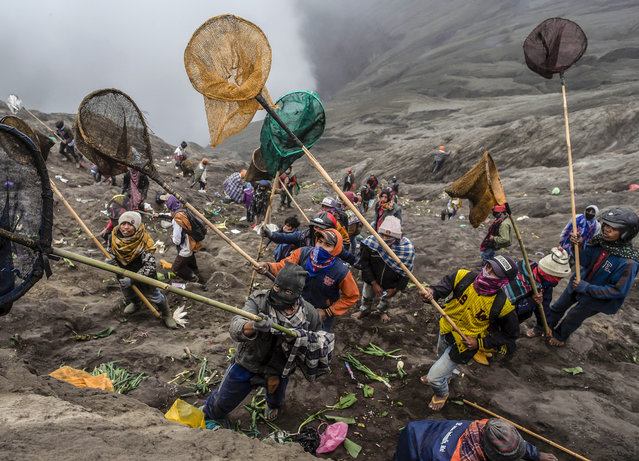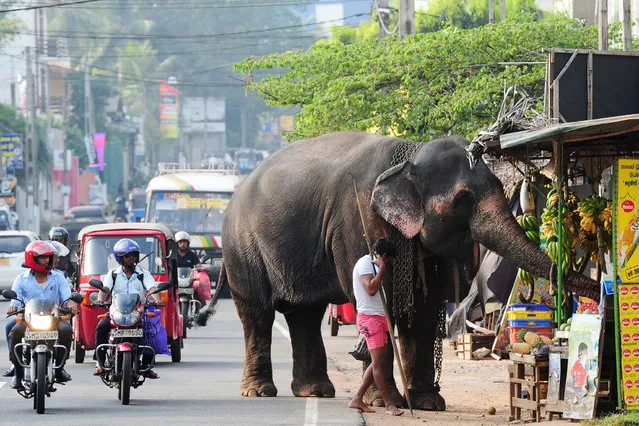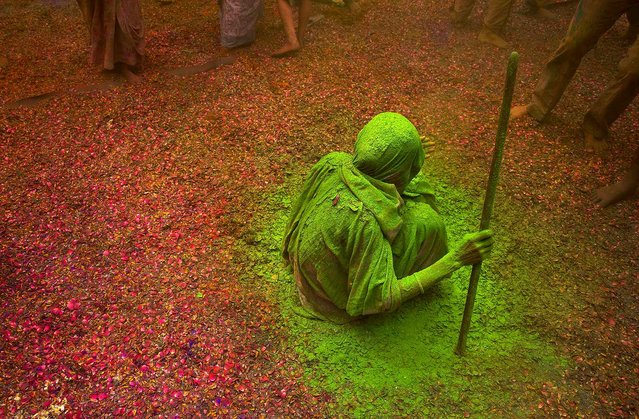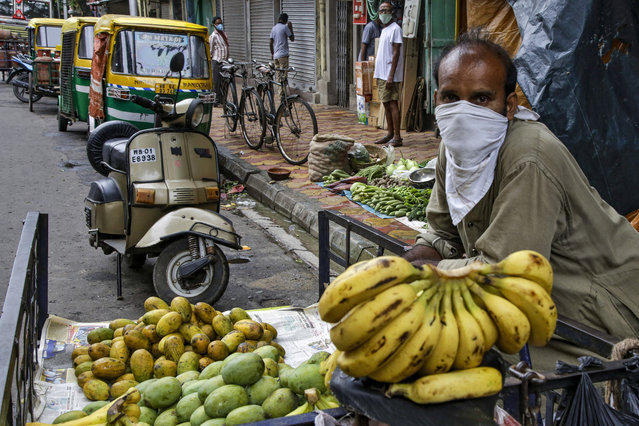
A street side fruit vendor has his face covered as a precaution against the coronavirus in Kolkata, India, Tuesday, July 21, 2020. With a surge in coronavirus cases in the past few weeks, state governments in India have been ordering focused lockdowns in high-risk areas to slow down the spread of infections. (Photo by Bikas Das/AP Photo)
14 Aug 2020 00:05:00,post received
0 comments

